
Co-Primary Investigators:

Katharine Rankin, Professor
Department of Geography and Planning, University of Toronto
Katharine Rankin is Professor of Geography and Planning at the University of Toronto. She is the author of Cultural Politics of Markets: Economic Liberalization and Social Change in Nepal (Pluto Press and University of Toronto Press 2004). Her academic publishing focuses on broad research interests in the areas of the politics of planning and development, feminist and critical theory, market formation, social economy and community development.
Website
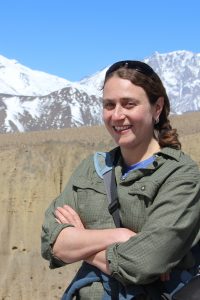
Sara Shneiderman, Assistant Professor
Department of Anthropology, University of British Columbia
Bio: Sara Shneiderman is Assistant Professor in Anthropology and the Institute of Asian Research at UBC. She is a socio-cultural anthropologist working in the Himalayan regions of Nepal, India, and China’s Tibetan Autonomous Region. Her research explores the relationships between political discourse, ritual action, and cross-border mobility in producing ethnic identities and shaping social transformation. Her new book is titled Rituals of Ethnicity: Thangmi Identities Between Nepal and India, an ethnography focusing on the cross-border circulation of Thangmi people and their ideas about ethnic, national, religious and political identity. Sara is also the Project Lead on a new Social Sciences and Humanities Research Council (SSHRC)-funded Partnership Development Grant entitled ‘Expertise, Labour, and Mobility in Nepal’s Post-Conflict, Post-Earthquake Reconstruction: Construction, Finance, and Law as Domains of Social Transformation’. She received her PhD (2009) and MA (2004) from Cornell University. Before moving to UBC, she was an Assistant Professor in Anthropology and South Asian Studies at Yale University from 2011-2014, and a Research Fellow at St Catharine’s College, University of Cambridge, from 2009-2011.
Website
Nepal Team: based at Martin Chautari Research and Policy Institute, Kathmandu
Research Fellow:
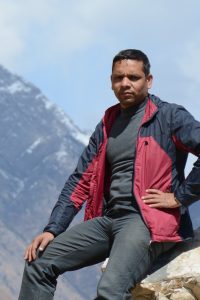
Tulasi Sharan Sigdel, Director of Studies
Nepal Administrative Staff College
Contact email: tsigdel@gmail.com | tsigdel@nasc.org.np
Bio: Tulasi Sharan Sigdel has received his MA in Rural Development from Tribhuvan University and currently is pursuing a PhD at Kathmandu University. Now, he works as Director of Studies (senior faculty) at Nepal Administrative Staff College, Jawalakhel where he trains bureaucrats. His areas of specialization are local governance, democracy and state-building, development planning, policy management, conflict management, social inclusion and research methods. He has presented research papers at national and international conferences and published journal articles, books and book chapters on development and governance issues. He has more than six years of experience in research and teaching to university graduates.
Research Associates:
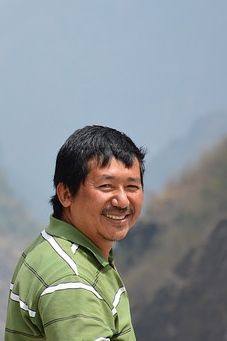
Lagan Rai, Lecturer
Department of Anthropology, Post Graduate College, Biratnagar (Tribhuvan University)
Contact email: laganrai@gmail.com
Bio: Lagan Rai completed an MPhil degree in Anthropology from Tribhuvan University. He has worked for research projects run by National Foundation for Development of Indigenous Nationalities (NEFDIN), Ministry of Local Development, Government of Nepal, Nepal Indigenous Women’s Federation (NIWF), Social Inclusion Research Fund/ SNV Nepal, and Institute for Culture and Development studies (SAGUN) as an individual researcher. His research interest covers food security, religious conversion and cultural change, democracy and cultural rights, development discourse, practices and people’s subjectivities in everyday life.
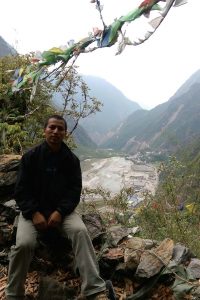
Shyam Bdr. Kunwar
Central Department of Sociology/Anthropology, Tribhuvan University
Contact email: skunwar1987@gmail.com
Bio: Shyam Kunwar is a student, pursuing an M.Phil. in Anthropology from Central Department of Anthropology at Tribhuvan University. He has conducted previous ethnographic studies and co-authored two ethnographic works published in Nepal. His research interest area is in anthropology, specifically around themes such as development project policies and practices, issues of inclusion and democracy, qualitative research, political subjectivity and governance. Currently he is engaged as a Research Associate for “Infrastructures of Democracy”.
Peer Researchers:
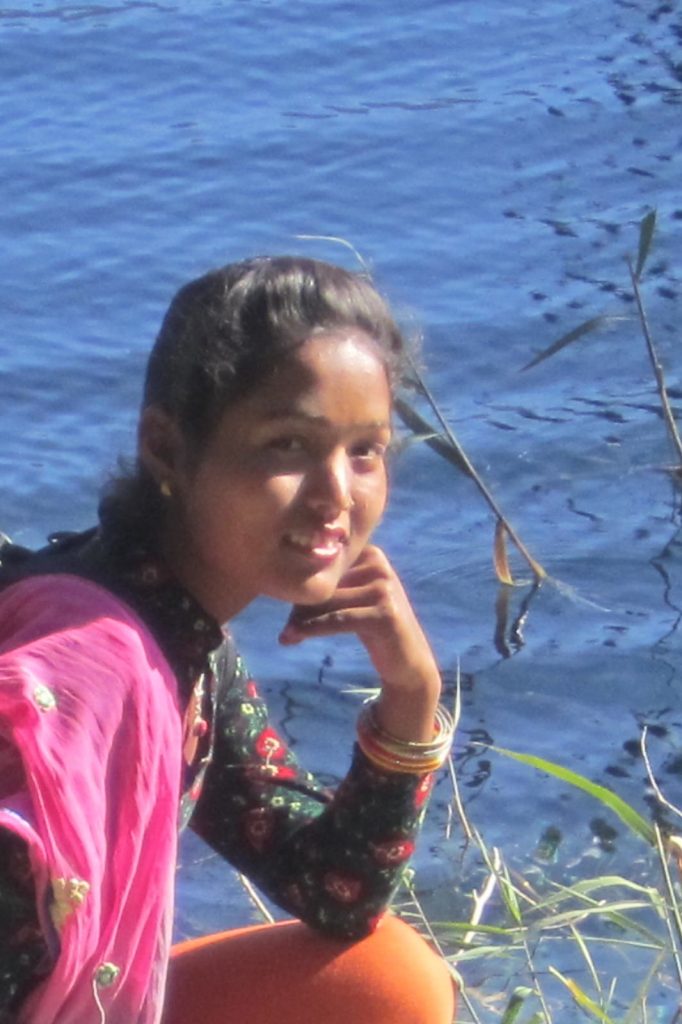
Samjhana Nepali (Mugu)
Samjhana Nepali is from Chhayanath-Rara Municipality Ward no 1, Chhatyalbada. She is doing her higher school education in Gamgadi. She is contributing her extensive knowledge and critical perspectives on project themes in the area. Before joining IOD as peer researcher, she worked as local researcher in a project called Mapping Gamgadi.
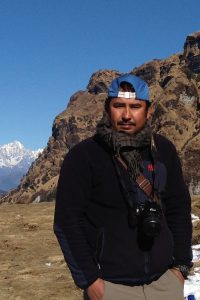
Shanta Thapa (Dolakha)
Shanta Thapa is a freelance researcher and has a Kiwi Fruit Nursery Business in Dolakha, Nepal. He holds master’s degree in Conflict Peace and Development Studies from Tribhuvan University and Graduate diploma from Nepa School of Social Sciences and Humanities, Kathmandu. He has beeninvolved as a research assistant in a number research projects in Nepal. His research interests are social science research, conflict, peace and development, contemporary politics, and local governance.

Santu Jirel (Dolakha)
Santu Jirel is a student perusing Bachelor’s degree in Humanities and Social Sciences, Gaurishankar Campus Charikot, Nepal. She also completed diploma in agriculture from CTEVT, Jiri Technical School, Jiri. She is interested in pursuing social research, community development, and agriculture research.
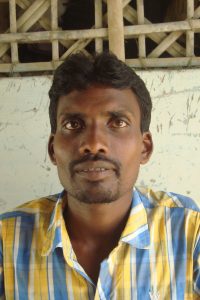
Durga Hasda (Morang)
Durga Hansda is a student pursuing a bachelor degree in education (BEd) from Birat Model College, Biratnagar. He has worked for local NGOs as a social mobilizer and has been involved in different research projects as a research assistant. He is interested in community and entrepreneurship skill development.
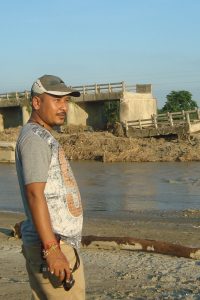
Yaman Sardar (Morang)
Yaman Sardar is a school teacher at Janak Memorial High School at Jhorahat Morang. He is also pursuing a bachelors degree in science (BSc) from for Mahendra Morang College and bachelor degree in social work (BSW) from Adarsh Multiple College at Biratnagar. He has previously worked as a local researcher in different research projects in the past.
Canada Team: based at the University of Toronto
Research Associates:
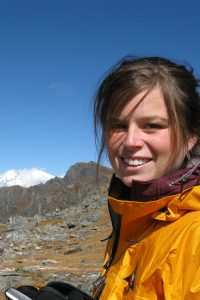
Elsie Lewison
Department of Geography and Planning, University of Toronto
Contact email: elsie.lewison@mail.utoronto.ca
Bio: Elsie Lewison is a PhD candidate in the Department of Geography and Planning at the University of Toronto. Her dissertation research examines the history and contemporary socio-natural relations of apple agroforestry in Jumla, Nepal with particular focus on the rationalities and technologies of governance, agrarian political economy and ecology, and the politics of difference.
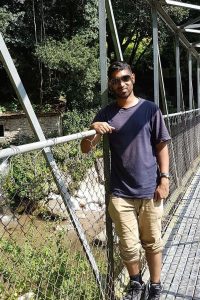
Adrian Khan
Department of Geography and Planning, University of Toronto
Bio: Adrian is currently pursuing his PhD in the Department of Geography and Planning at the University of Toronto. He completed a Master’s degree in Development Studies, at York University. He holds a Double Major Honors B.A. from York University in Sociology and Children’s Studies. He has completed fieldwork in Toronto, Georgetown (Guyana), and Kathmandu (Nepal) predominantly in the field of child/youth rights within educational and community development contexts. Adrian participated in a combined internship in Nepal with Projects Abroad and Nepali Host Family. His SSHRC-funded MA research, built on his five-year working experience in Nepal, to explore the emotional journeys of Himalayan students. Adrian’s current research interests include youth activism in international contexts, race and racism, and social justice education.

Pushpa Hamal
Ontario Institute for Studies in Education (OISE), University of Toronto
Bio: Pushpa Hamal is pursuing doctoral studies at the Ontario Institute for Studies in Education (OISE), University of Toronto. He recently completed his MA in Geography at Brock University. He has research interests in examining the relationships between political subjectivity, state restructuring and community building in Nepal, with a focus on rural roads as a key site of political action and learning.
Collaborators:

Galen Murton, Assistant Professor
Department of Integrated Science and Technology, James Madison University
Bio: Galen Murton is an Assistant Professor in the Department of Integrated Science and Technology at James Madison University with teaching responsibilities in the Geographic Sciences Program. He completed his PhD in the Department of Geography at the University of Colorado Boulder (2017) with a dissertation that examines the social and geopolitical impacts of infrastructure projects in High Asia with a close focus on road developments between China and Nepal. He also recently received a Marie S. Curie Action (MSCA) Individual Fellowship from the European Commission Horizon 2020 program to conduct independent mobility research with the Department of Social and Cultural Anthropology at Ludwig Maximilian University Munich (LMU). The research project Road Diplomacy: China in South Asia, builds directly upon and expands my dissertation studies at CU Boulder and aims to generate new knowledge about where, why, and to what extent roads are being built between China and South Asia and to untangle the inter-related geopolitical and social impacts of infrastructure development at village, national, and international scales.
Website

Stacy Pigg, Professor
Department of Anthropology, Simon Fraser University
Bio: Dr. Stacy Leigh Pigg, Professor of Anthropolgy and Associate Member of the School for International Studies, received her M.A. and Ph.D. degrees from Cornell University. Dr. Pigg’s interests lie at the intersection of medical anthropology and the study of postcolonial cultural relations. Her 2005 book (co-edited with Vincanne Adams), Sex in Development: Science, Sexuality, and Morality in Global Perspective links theory from science studies, critical studies of development, and cultural analyses of sexuality in studies of the rationalization and medicalization of sexuality around the world. She has done field research in Nepal on the creation of public knowledge about AIDS, on the cultural impact of national ideologies of development, and on the relation between western medicine and traditional healing – topics that reflect her long-standing interest in the negotiation of differing frameworks of meaning as this occurs under conditions of social inequality. Dr. Pigg’s recent work on AIDS awareness in Nepal looks at how global expertise becomes linked to local social concerns through medical issues. Much of her previous work has dealt with constructions of “modernity” and “tradition” — in Nepalese society, in international development, and in anthropological theory.
Website
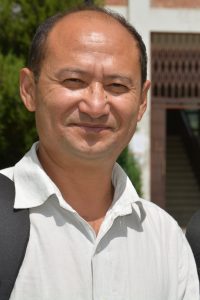
Mukta Singh Lama, Lecturer
Central Department of Sociology/Anthropology, Tribhuvan University
Bio: Mukta Singh Lama is a Lecturer at the Central Department of Sociology/Anthropology at Tribhuvan Univeristy. He has served as a Senior Research Fellow and Adjunct Professor at the Nepa School of Social Sciences and Humanities, and has worked as a researcher and consultant for a wide variety of development projects in the areas of social inclusion, indigenous peoples and other excluded and minority groups. He has also worked as international trainer on participatory and rights-based development approaches. His major areas of work include indigenous people’s issues, history and identity, participatory approaches, human rights and social inclusion. He started his career as grassroots community development worker and has gained more than 25 years of experience on social development. He received his doctoral degree at Cornell University with the dissertation entitled ‘Himalayan Indigeneity: Histories, Memory, and Identity among Tamang in Nepal’. His publications include ‘Cultural Diversity and Democracy in Nepal’ (2002), ‘The Working of Democracy in Nepal’ (2005), ‘Culture, Caste and Ethnicity in the Maoist Movement’ (2006).
Website
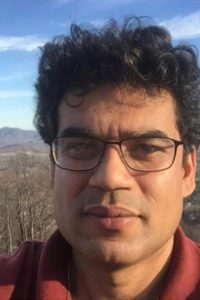
Dinesh Paudel, Assistant Professor
Sustainable Development Department, Appalachian State University
Bio: Dinesh Paudel is an Assistant Professor in the Sustainable Development Department at Appalachian State University. Before coming to Appalachian, he was a postdoctoral fellow in the Department of Geography at Dartmouth College where he taught courses on Environment and Development, Geographies of Protest and Revolution, and Gender and Development. He received his PhD in Geography from the University of Minnesota in 2012 where he studied the historical connections between international development programs and the rise of Maoist uprisings in Nepal. Broadly, he is interested in understanding how development discourses originate and travel, and how they articulate with economic, ecological and political processes at multiple scales. One of his current research projects focuses in exploring the inherent relationships and complex entanglements between the rising Asian economies, growing environmental degradations and rapidly expanding rebellious politics in South Asia.
Website

Ram Krishna Sapkota, Director General
Department of Local Infrastructure Development and Agriculture Roads
Bio: Ram Krishna Sapkota is the Director General of the Department of Local Infrastructure Development and Agriculture Roads (DOLIDAR), one of the main governmental bodies responsible for infrastructure development in Nepal. In addition to his role at DOLIDAR Mr. Sapkota also serves as a Joint Secretary at the Ministry of Federal Affairs and Local Development. He has previously served in DOLIDAR as the Chief of the Human Resource Development Section, Chief District Engineer (Tanahun), and as Project Coordinator for major donor funded infrastructure projects, as well as the Division Office Chief for the Department of Water Supply and Sewarage. He has a Bachelors of Engineering and a MSc in Environmental Engineering from Tribhuvan University.
Website

Fraser Sugden, Senior Lecturer in Human Geography
School of Geography, Earth and Environmental Sciences, University of Birmingham
Bio: Fraser Sugden is a Senior Lecturer in Human Geography in the School of Geography, Earth and Environmental Sciences, University of Birmingham. He specializes in the political economy of agriculture, water management and resilience. He is a development geographer by training, with research interests in rural class relations, gender and migration, and their role in mediating access to water and other land resources. His recent research has focused on ‘agrarian stress’ in South Asia due to climate change and its intersection with local political-economic structures on the one hand, and the economic pressures of globalization on the other. He has worked for over a decade in the Eastern Gangetic Plains, with a focus on Nepal’s Tarai-Madhesh, Bihar and West Bengal. He has engaged in further long running field research in Nepal’s eastern and far-western Himalaya, China, Vietnam and Bangladesh. His PhD on land relations in lowland Nepal was completed in 2009 from the University of Edinburgh, after which he joined the University of Stirling as a postdoctoral research fellow for a project on highland aquatic resources in upland Asia (HighARCS), before joining IWMI.
Website
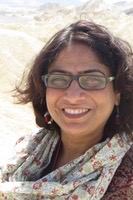
Neera Singh, Assistant Professor
Department of Geography and Program in Planning, University of Toronto
Bio: Neera is an Assistant Professor of Geography within the Dept. of Geography and Planning, at the University of Toronto. Neera’s long-term engagement as an activist informs her research and pedagogical approach, raising questions around human-forest interactions and theoretical approaches to study these interactions. Neera’s work focuses on the much-neglected emotional and affective dimensions of people’s relationship with nature. She completed her PhD from Michigan State University.
Website

